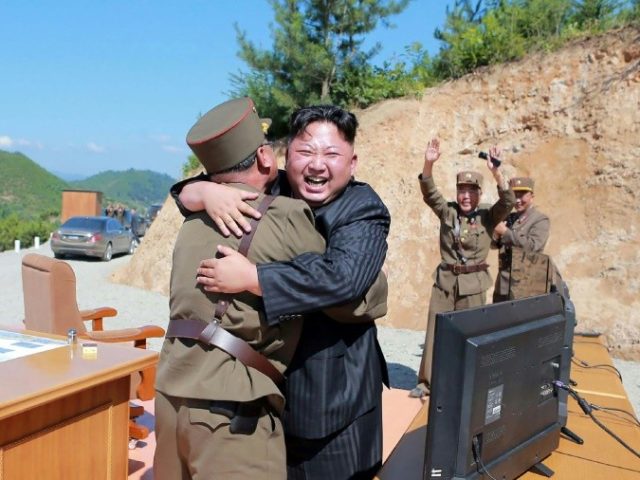A grim milestone appears to be passing, as both U.S. and Japanese intelligence analysts believe North Korea has developed the technology to miniaturize nuclear warheads and fit them inside long-range missiles, years ahead of schedule.
Japan’s annual defense review, released on Tuesday morning, described the threat from North Korea’s nuclear missile program as “acute.”
“It is conceivable that North Korea’s nuclear weapons program has already considerably advanced and it is possible that North Korea has already achieved the miniaturization of nuclear weapons and has acquired nuclear warheads,” the white paper warned. “Since last year, when it forcibly implemented two nuclear tests and more than 20 ballistic missile launches, the security threats have entered a new stage.”
Accordingly, the BBC reported that Japan has begun its first civilian air-raid drills since the end of World War II, evidently stepping up a program revealed earlier this year which taught civilians in certain towns how to deal with an errant North Korean test missile (or perhaps a weapon fired at American military installations in Japan) falling in a populated area.
“We’re told to hit the ground or hide behind the wall, but will that really help? Will that really protect us if a missile really falls here, I wonder?” asked one Japanese citizen interviewed by the BBC.
The Washington Post reported on Tuesday afternoon that U.S. analysts at the Defense Intelligence Agency reached similar conclusions about North Korea’s capabilities in a confidential assessment prepared last month.
The DIA report also raised the official estimate of North Korea’s nuclear inventory considerably, from the handful of bombs hypothesized by most earlier analyses to almost 60 nuclear devices.
The report’s authors believe some of these devices are small enough to be delivered by intercontinental ballistic missile. As the Washington Post notes, North Korea claims it has successfully tested such miniaturized devices, although their claims were greeted with widespread skepticism at the time. The missing piece of the ICBM puzzle for North Korea would appear to be reliable heat shielding to protect the warheads from re-entry, a technology Pyongyang is clearly working hard to develop.
A new poll from the Chicago Council on Global Affairs released on Monday found 90 percent of Americans “reject the idea that North Korea should be allowed to produce nuclear weapons,” 75 percent see the North Korean nuclear program as a “critical threat facing the United States,” and 62 percent would support using American troops to defend South Korea from a North Korean attack.

COMMENTS
Please let us know if you're having issues with commenting.